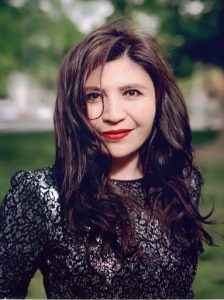Rayhan Asat Joins the Atlantic Council as Nonresident Senior Fellow
Leading international human rights lawyer will serve within the Council’s Strategic Litigation Project, with a focus on the persecution of the Uyghur minority, and the US corporate response, along with other global human rights crises.
Washington, DC—June 9, 2021— The Atlantic Council announced today that Rayhan Asat, an international human rights lawyer with a proven track record on international human rights advocacy, has joined the Strategic Litigation Project as a nonresident senior fellow. Rayhan will lead a portfolio of strategic legal work to seek redress and bring an end to the mass atrocities currently perpetrated against her brother Ekpar Asat, a renowned tech entrepreneur jailed by the Chinese Communist Party, and millions of other Uyghurs—a Turkic ethnic group—in China’s Xinjiang Uyghur Autonomous Region.
A graduate of Harvard Law School and former anti-corruption attorney at a major US law firm, Asat has worked on high-profile corruption cases throughout her career. Her legal and policy work centers around enforcing international human rights norms, combating corruption, advancing civil liberties, preventing atrocities, ending forced labor, and promoting corporate accountability. Asat will apply this experience at the Council, where she will play a leading role in the Council’s growing work on international human rights and strategic litigation and accountability, with a particular focus on China and East Asia.
Asat’s intimate knowledge of the Uyghur crisis in China, coupled with her legal expertise, will add a new dimension to the work that examines how to hold economically powerful countries with global presence accountable for mass atrocities.
“We are thrilled to welcome Rayhan to the Strategic Litigation Project team. Her intimate knowledge of the Uyghur crisis in China, coupled with her legal expertise, will add a new dimension to the work that examines how to hold economically powerful countries with global presence accountable for mass atrocities,” said Gissou Nia, senior fellow and head of the Atlantic Council’s Strategic Litigation Project.
Asat previously advised the World Bank and OECD to design Human-Centered Business Integrity Principles. She has testified before the Canadian House of Commons, the UK House of Commons, the Lithuanian Parliament, and the US Congress at a joint hearing called by the China-Congressional Executive Commission and the Tom Lantos Human Rights Commission concerning egregious human rights abuses. Asat is a 2021 Maurice R. Greenberg World Fellow at Yale’s Jackson Institute for Global Affairs.
“I am honored to join the Atlantic Council. Surrounded by global leaders and policy experts, I will help create a more decent world and a shared future worth aspiring to. As an Uyghur, I deal with mass atrocity on a daily basis, and the Council’s Strategic Ligation Project will help me pursue justice for my own brother Ekpar Asat and all others facing unhindered state violence across the globe. I look forward to using my experience in international law and human rights to halt the newest wave of crimes against humanity while reinvigorating pluralistic democracy. I hope to provide a much-need Uyghur voice informing US-EU foreign policy, strategies for international corporations to respond with moral integrity towards the crisis in Xinjiang, and other global issues,” said Asat.
The Atlantic Council’s Strategic Litigation Project seeks to inject fresh thinking into how governments and practitioners can apply legal tools to advance human rights and democracy around the world.
For inquiries or to request an interview, please contact press@AtlanticCouncil.org
Read more about our experts:

Through our Rafik Hariri Center for the Middle East and Scowcroft Middle East Security Initiative, the Atlantic Council works with allies and partners in Europe and the wider Middle East to protect US interests, build peace and security, and unlock the human potential of the region.
